- Home
- Daphne Du Maurier
Jamaica Inn Page 3
Jamaica Inn Read online
Page 3
"Who is it?" came the shout. "What do you want here?"
Mary stepped forward and peered up into the man's face.
The light shone in her eyes, and she could see nothing. He swung the lantern to and fro before her, and suddenly he laughed and took hold of her arm, pulling her roughly inside the porch.
"Oh, it's you, is it?" he said. "So you've come to us after all? I'm your uncle, Joss Merlyn, and I bid you welcome to Jamaica Inn." He drew her into the shelter of the house, laughing again, and shut the door, and stood the lantern upon a table in the passage. And they looked upon each other face to face.
2
He was a great husk of a man, nearly seven feet high, with a creased black brow and a skin the color of a gypsy. His thick dark hair fell over his eyes in a fringe and hung about his ears. He looked as if he had the strength of a horse, with immense powerful shoulders, long arms that reached almost to his knees, and large fists like hams. His frame was so big that in a sense his head was dwarfed, and sunk between his shoulders, giving that half-stooping impression of a giant gorilla, with his black eyebrows and his mat of hair. But for all his long limbs and mighty frame there was nothing of the ape about his features, for his nose was hooked, curving to a mouth that might have been perfect once but was now sunken and fallen, and there was still something fine about his great dark eyes, in spite of the lines and pouches and the red blood-flecks.
The best things left to him were his teeth, which were all good still, and very white, so that when he smiled they showed up clearly against the tan of his face, giving him the lean and hungry appearance of a wolf. And, though there should be a world of difference between the smile of a man and the bared fangs of a wolf, with Joss Merlyn they were one and the same.
"So you are Mary Yellan," he said at length, towering above her, his head bent to observe her more closely, "and you've come all this way to look after your Uncle Joss. I call it very handsome of you."
He laughed again, mocking her, his laugh bellowing through the house, acting like a lash on the strung nerves of Mary.
"Where is my Aunt Patience?" she asked, glancing around her in the dimly lit passage, cheerless with its cold stone flags and narrow rickety staircase. "Is she not expecting me, then?"
" 'Where's my Aunt Patience?' " mimicked the man. "Where's my dear auntie to kiss me and daddle me, and make much of me? Can't you wait an instant without running to her? Haven't you a kiss for your Uncle Joss?"
Mary drew back. The thought of kissing him revolted her. He was either mad or drunk, anyway. Probably both. She did not want to anger him, though; she was too frightened for that.
He saw the question pass through her mind, and he laughed again.
"Oh, no," he said, "I'm not going to touch you; you're safe as a church with me. I never did like dark women, my dear, and I've better things to do than to play cat's-cradle with me own niece."
He jeered down at her contemptuously, treating her like a fool, tired of his joke. Then he lifted his head to the stairs.
"Patience," he roared, "what in hell are you doing? Here's the girl arrived, whimpering for you. She's sick of the sight of me already."
There was a little flutter at the head of the stairs, and a footstep dragged. Then the flicker of a candle, and an exclamation. Down the narrow stairs came a woman, shielding the light from her eyes. She wore a dingy mob-cap on her thin gray hair, which hung in elf-locks to her shoulders. She had turned the edges of her hair in a vain attempt to recapture ringlets, but the curl had gone. Her face had fallen away, and the skin was stretched tight across her cheekbones. Her eyes were large and staring, as though they asked perpetually a question, and she had a little nervous trick of working her mouth, now pursing the lips and now relaxing them. She wore a faded striped petticoat that had once been cherry-colored and was now a washed-out pink, and over her shoulders was flung a much-mended shawl. She had obviously just strung a new ribbon in her cap in some small attempt to brighten her dress, and it struck a false, incongruous note. It was bright scarlet, and showed up in horrible contrast to the pallor of her face. Mary stared at her dumbly, stricken with sorrow. Was this poor tattered creature the bewitching Aunt Patience of her dreams, dressed now like a slattern, and twenty years her age?
The little woman came down the stairs and into the hall; she took Mary's hands in hers and peered into her face. "Have you really come?" she whispered. "It is my niece Mary Yellan, isn't it? My dead sister's child?"
Mary nodded, thanking God that her mother could not see her now. "Dear Aunt Patience," she said gently, "I'm glad to see you again. It's so many long years since you came to us at Helford."
The woman kept pawing her with her hands, stroking her clothes, feeling her, and suddenly she clung to her, burying her head against her shoulder, and she began to cry, loudly and fearfully, drawing her breath in gasps.
"Ah, stop that," growled her husband. "What sort of a welcome is this? What have you got to squark about, you damned fool? Can't you see the girl wants her supper? Get her out to the kitchen and give her some bacon and a drink."
He bent down and shouldered Mary's box as though it weighed less than a paper packet. "I'll take this to her room," he said, "and if you've not got a bite of supper on the table by the time I'm down again I'll give you something to cry about; and you too, if you like," he added, thrusting his face into Mary's and laying one great finger across her mouth. "Are you tame, or do you bite?" he said, and then he laughed once more, bellowing to the roof, and thundered up the narrow stairs with the box swaying on his shoulders.
Aunt Patience controlled herself. She made a tremendous effort and smiled, patting her thin locks into place in an old gesture that Mary half remembered, and then, blinking nervously and working her mouth, she led the way to yet another murky passage, and so into the kitchen, which was lit by three candles, while a low turf fire smoldered on the hearth.
"You mustn't mind your Uncle Joss," she said, her manner changing suddenly, fawning almost, like a whimpering dog that has been trained by constant cruelty to implicit obedience, and who, in spite of kicks and curses, will fight like a tiger for its master. "Your uncle must be humored, you know; he has his ways, and strangers don't understand him at first. He's a very good husband to me, and has been so since our wedding-day."
She pattered on mechanically, going backwards and forwards across the flagged kitchen as she laid the table for supper, taking bread, cheese, and dripping from the big cupboard behind the paneling, while Mary crouched beside the fire in a hopeless attempt to warm her chilled fingers.
The kitchen was heavy with peat-smoke. It crept up to the ceiling and into the corners, and hung about the air like a thin blue cloud. It stung Mary's eyes, and explored her nostrils, and lay upon her tongue.
"You'll soon come to like your Uncle Joss, and fit into his ways," continued her aunt. "He's a very fine man, and a very brave one. He has a great name hereabouts, and is much respected. There's no one will say a word against Joss Merlyn. We have great company here at times. It's not always as quiet as this. It's a very busy highway, you know. The coaches pass every day. And the gentry are most civil to us, most civil. A neighbor was in only yesterday, and I made him a cake to take home. 'Mrs. Merlyn,' he said, 'you're the only woman in Cornwall can bake a cake.' Those were his very words. And even the squire himself--that's Squire Bassat, you know, from North Hill; he owns all the land hereabouts--he passed me on the road the other day--Tuesday it was--and he took off his hat. 'Good morning, madam,' he said, and he bowed to me from his horse. They say he was a great man for the women in his day. Then out comes Joss from the stable, where he had been mending the wheel of the trap. 'How's life, Mr. Bassat?' he says. 'As large as yourself, Joss,' answers the squire, and they both fell to laughing."
Mary murmured some reply to this little speech, but she was pained and worried to see how, when speaking, Aunt Patience avoided her eyes, and the very fluency of her words was in itself suspicious. She spoke much as a child does w
ho tells herself a story and has a talent for invention. It hurt Mary to see her act this part, and she longed for her to be done with it, or be silent, for the flow of words was, in its way, more appalling than her tears had been. There was a footfall outside the door, and with a sinking heart Mary realized that Joss Merlyn had come downstairs again, and had in all possibility listened to his wife's conversation.
Aunt Patience heard him too, for she turned pale, and began to work her mouth. He came into the room, and looked from one to the other.
"So the hens are clacking already?" he said, the smile and the laugh gone, his eyes narrow. "You'll soon stop your tears if you can talk. I heard you, you blathering fool--gobble, gobble, gobble, like a turkey-hen. Do you think your precious niece believes a word you say? Why, you wouldn't take in a child, far less a bunch of petticoats like her."
He pulled a chair from the wall, and crashed it against the table. He sat down heavily, the chair creaking beneath him, and, reaching for the loaf, cut himself off a great hunk of bread, which he slabbed with dripping. He crammed it into his mouth, the grease running down his chin, and beckoned Mary to the table. "You need food, I can see that," he said, and he proceeded to cut carefully a thin slice from the loaf, which he quartered in pieces and buttered for her, the whole business very delicately done and in striking contrast to his manner in serving himself--so much so that to Mary there was something almost horrifying in the change from rough brutality to fastidious care. It was as though there was some latent power in his fingers which turned them from bludgeons into deft and cunning servants. Had he cut her a chunk of bread and hurled it at her she would not have minded so much; it would have been in keeping with what she had seen of him. But this sudden coming to grace, this quick and exquisite moving of his hands, was a swift and rather sinister revelation, sinister because it was unexpected and not true to type. She thanked him quietly, and began to eat.
Her aunt, who had not uttered since her husband entered the room, was frying bacon over the fire. No one spoke. Mary was aware of Joss Merlyn watching her across the table, and behind her she could hear her aunt fumbling with ineffectual fingers at the hot handle of the frying-pan. In a minute she had dropped it, uttering a little cry of distress. Mary rose from her place to help her, but Joss thundered at her to sit down.
"One fool is bad enough, without making a couple of them," he shouted. "Keep your seat and let your aunt clear up the mess. It won't be for the first time." He leaned back in his chair, and began to pick his teeth with his nails. "What'll you drink?" he asked her. "Brandy, wine, or ale? You may starve here but you won't go thirsty. We don't get sore throats at Jamaica." And he laughed at her, and winked, and put out his tongue.
"I'll have a cup of tea if I may," said Mary. "I'm not used to drinking spirits, nor wine neither."
"Oh, you're not? Well, it's your loss, I'm glad to say. You can have your tea tonight, but, by God, you'll want some brandy in a month or two."
He reached across the table and took hold of her hand.
"You've a pretty enough paw for one who's worked on a farm," he said. "I was afraid it would be rough and red. If there's one thing that makes a man sick it's to have his ale poured out by an ugly hand. Not that my customers are over-particular, but then we've never had a barmaid before at Jamaica Inn." He gave her a mock bow, and dropped her hand.
"Patience, my dear," he said, "here's the key. Go and fetch me a bottle of brandy, for the Lord's sake. I've a thirst on me that all the waters of Dozmary would not slake." His wife hurried across the room at his word, and disappeared into the passage. Then he fell to picking his teeth again, whistling from time to time, while Mary ate her bread and butter, and drank the tea that he placed before her. Already a splitting headache tightened her brow, and she was ready to drop. Her eyes watered from the peat-smoke. But she was not too tired to watch her uncle, for already she had caught something of the nervousness of her Aunt Patience, and felt that in some sense they were here like mice in a trap, unable to escape, with him playing with them like a monstrous cat.
In a few minutes his wife returned with the brandy, which she put in front of her husband, and while she finished her cooking of the bacon, and served Mary and herself, he fell to drinking, staring moodily before him, kicking the leg of the table. Suddenly he thumped the table with his fist, shaking the plates and cups, while one platter crashed to the floor and broke.
"I tell you what it is, Mary Yellan," he shouted. "I'm master in this house, and I'll have you know it. You'll do as you're told, and help in the house and serve my customers, and I'll not lay a finger on you. But, by God, if you open your mouth and squark, I'll break you until you eat out of my hand the same as your aunt yonder."
Mary faced him across the table. She held her hands in her lap so that he should not see them tremble.
"I understand you," she said. "I'm not curious by nature, and I've never gossiped in my life. It doesn't matter to me what you do in the inn, or what company you keep. I'll do my work about the house and you'll have no cause to grumble. But if you hurt my Aunt Patience in any way, I tell you this--I'll leave Jamaica Inn straight away, and I'll find the magistrate, and bring him here, and have the law on you; and then try and break me if you like."
Mary had turned very pale, and she knew that if he thundered at her now she would break down and cry, and he would have the mastery of her forever. The torrent of words had come from her in spite of herself, and wrung with pity for the poor broken thing that was her aunt, she could not control them. Had she but known it, she had saved herself, for her little show of spirit impressed the man, and he leaned back in his chair and relaxed.
"That's very pretty," he said; "very prettily put indeed. Now we know just what sort of lodger we have. Scratch her, and she shows her claws. All right, my dear; you and I are more akin than I thought. If we are going to play, we'll play together. I may have work for you at Jamaica one day, work that you've never done before. Man's work, Mary Yellan, where you play with life and death." Mary heard her Aunt Patience give a little gasp beside her.
"Oh, Joss," she whispered. "Oh, Joss, please!"
There was so much urgency in her voice that Mary stared at her in surprise. She saw her aunt lean forward and motion her husband to be silent, and the very eagerness of her chin and the agony in her eyes frightened Mary more than anything that had happened that night. She felt eerie suddenly, chilled, and rather sick. What had roused Aunt Patience to such panic? What had Joss Merlyn been about to say? She was aware of a fevered and rather terrible curiosity. Her uncle waved his hand impatiently.
"Get up to bed, Patience," he said. "I'm tired of your death's head at my supper-table. This girl and I understand one another."
The woman rose at once and went to the door, with a last ineffectual glance of despair over her shoulder. They heard her patter up the stairs. Joss Merlyn and Mary were alone. He pushed the empty brandy-glass away from him and folded his arms on the table.
"There's been one weakness in my life, and I'll tell you what it is," he said. "It's drink. It's a curse, and I know it. I can't stop myself. One day it'll be the end of me, and a good job too. There's days go by and I don't touch more than a drop, same as I've done tonight. And then I'll feel the thirst come on me and I'll soak. Soak for hours. It's power, and glory, and women, and the Kingdom of God, all rolled into one. I feel a king then, Mary. I feel I've got the strings of the world between my two fingers. It's heaven and hell. I talk then, talk until every damned thing I've ever done is spilt to the four winds. I shut myself in my room and shout my secrets in my pillow. Your aunt turns the key on me, and when I'm sober I hammer on the door and she lets me out. There's no one knows that but she and I, and now I've told you. I've told you because I'm already a little drunk and I can't hold my tongue. But I'm not drunk enough to lose my head. I'm not drunk enough to tell you why I live in this God-forgotten spot, and why I'm the landlord of Jamaica Inn." His voice was hoarse, and now he scarcely spoke above a whisper. The tur
f fire had sunk low in the hearth, and dark shadows stretched long fingers on the wall. The candles too had burned down, and cast a monstrous shadow of Joss Merlyn on the ceiling. He smiled at her, and with a foolish drunken gesture he laid his finger against his nose.
"I've not told you that, Mary Yellan. Oh, no, I've got some sense and cunning left. If you want to know anymore you can ask your aunt. She'll pull you a tale. I heard her blathering tonight, telling you we kept fine company here, and the squire takes off his hat to her. It's lies, all lies. I'll tell you that much, for you'll come to know it anyway. Squire Bassat's too mortal scared to shove his nose in here. If he saw me in the road he'd cross his heart and spur his horse. And so would all the precious gentry. The coaches don't stop here now, nor the mails neither. I don't worry; I've customers enough. The wider berth the gentry give to me the better pleased I am. Oh, there's drinking here all right, and plenty of it too. There's some who come to Jamaica Saturday night, and there's some who turn the key of their door and sleep with their fingers in their ears. There are nights when every cottage on the moors is dark and silent, and the only lights for miles are the blazing windows of Jamaica Inn. They say the shouting and the singing can be heard as far down as the farms below Roughtor. You'll be in the bar those nights, if you've a fancy for it, and you'll see what company I keep."
Mary sat very still, gripping the sides of her chair. She dared not move for fear of that swift changing of his mood which she had observed already, and which would turn him from this sudden intimate tone of confidence to a harsh and coarse brutality.
"They're all afraid of me," he went on; "the whole damned lot of 'em. Afraid of me, who's afraid of no man. I tell you, if I'd had learning, I'd have walked the breadth of England beside King George himself. It's drink that's been against me, drink and my hot blood. It's the curse of all of us, Mary. There's never been a Merlyn yet that died peaceful in his bed.
"My father was hanged at Exeter--he had a brawl with a fellow, and killed him. My granddad had his ears cut for thieving; he was sent out to a convict settlement and died raving mad from a snakebite in the tropics. I'm the eldest of three brothers, all of us born under the shadow of Kilmar, away yonder above Twelve Men's Moor. You walk out over there across the East Moor till you come to Rushyford, and you'll see a great crag of granite like a devil's hand sticking up into the sky. That's Kilmar. If you'd been born under its shadow you'd take to drink, same as I did. My brother Matthew, he was drowned in Trewartha Marsh. We thought he'd gone for a sailor, and had no news of him, and then in the summer there was a drought, and no rain fell for seven months, and there was Matthew sticking up in the bog, with his hands above his head, and the curlews flying round him. My brother Jem, damn him, he was the baby. Hanging onto mother's skirts when Matt and I were grown men. I never did see eye to eye with Jem. Too smart he is, too sharp with his tongue. Oh, they'll catch him in time and hang him, same as they did my father."

 Jamaica Inn
Jamaica Inn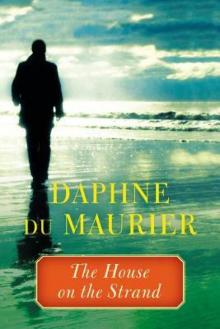 The House on the Strand
The House on the Strand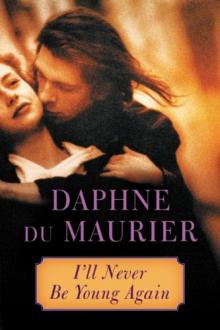 I'll Never Be Young Again
I'll Never Be Young Again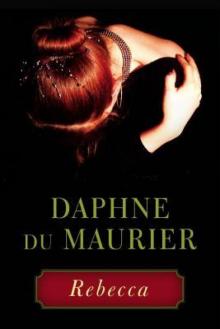 Rebecca
Rebecca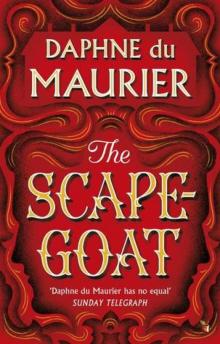 The Scapegoat
The Scapegoat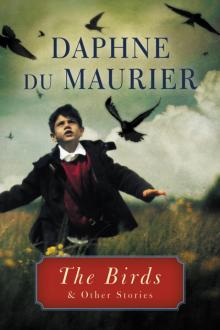 The Birds and Other Stories
The Birds and Other Stories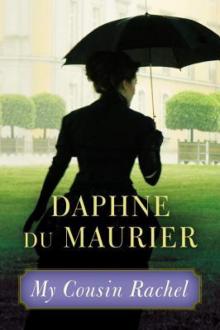 My Cousin Rachel
My Cousin Rachel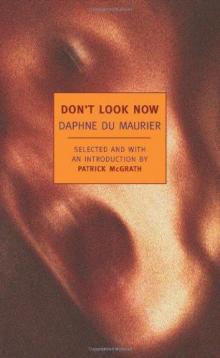 Don't Look Now
Don't Look Now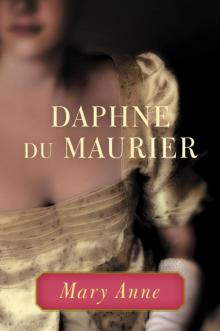 Mary Anne
Mary Anne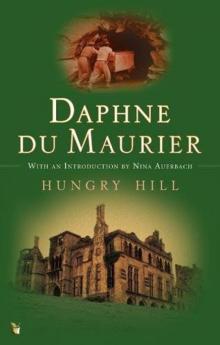 Hungry Hill
Hungry Hill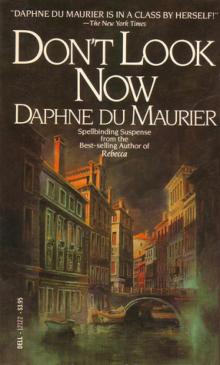 Don't Look Now and Other Stories
Don't Look Now and Other Stories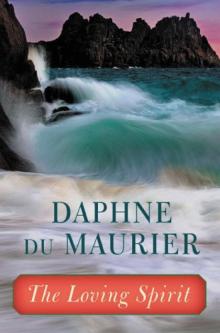 The Loving Spirit
The Loving Spirit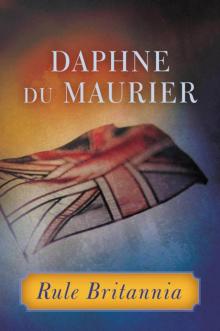 Rule Britannia
Rule Britannia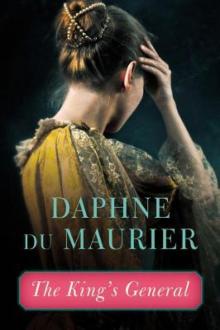 The King's General
The King's General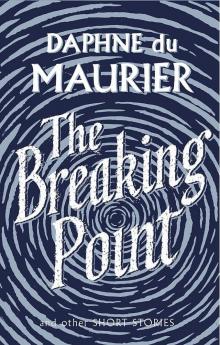 The Breaking Point: Short Stories
The Breaking Point: Short Stories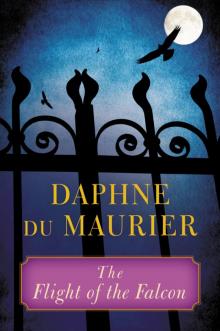 The Flight of the Falcon
The Flight of the Falcon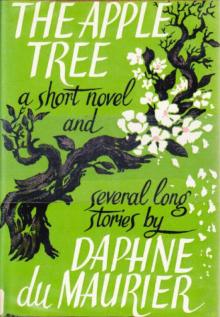 The Apple Tree: a short novel & several long stories
The Apple Tree: a short novel & several long stories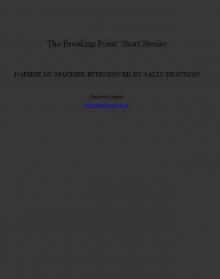 The Breaking Point
The Breaking Point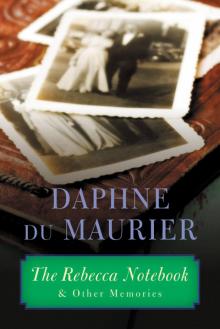 The Rebecca Notebook
The Rebecca Notebook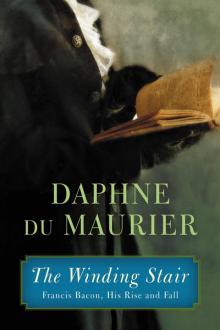 The Winding Stair: Francis Bacon, His Rise and Fall
The Winding Stair: Francis Bacon, His Rise and Fall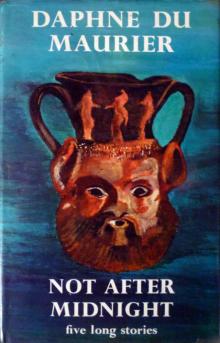 Not After Midnight & Other Stories
Not After Midnight & Other Stories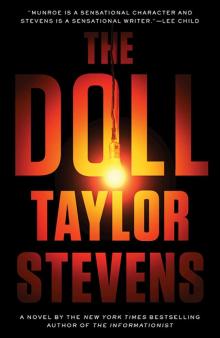 The Doll
The Doll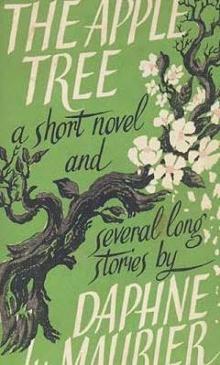 The Apple Tree
The Apple Tree